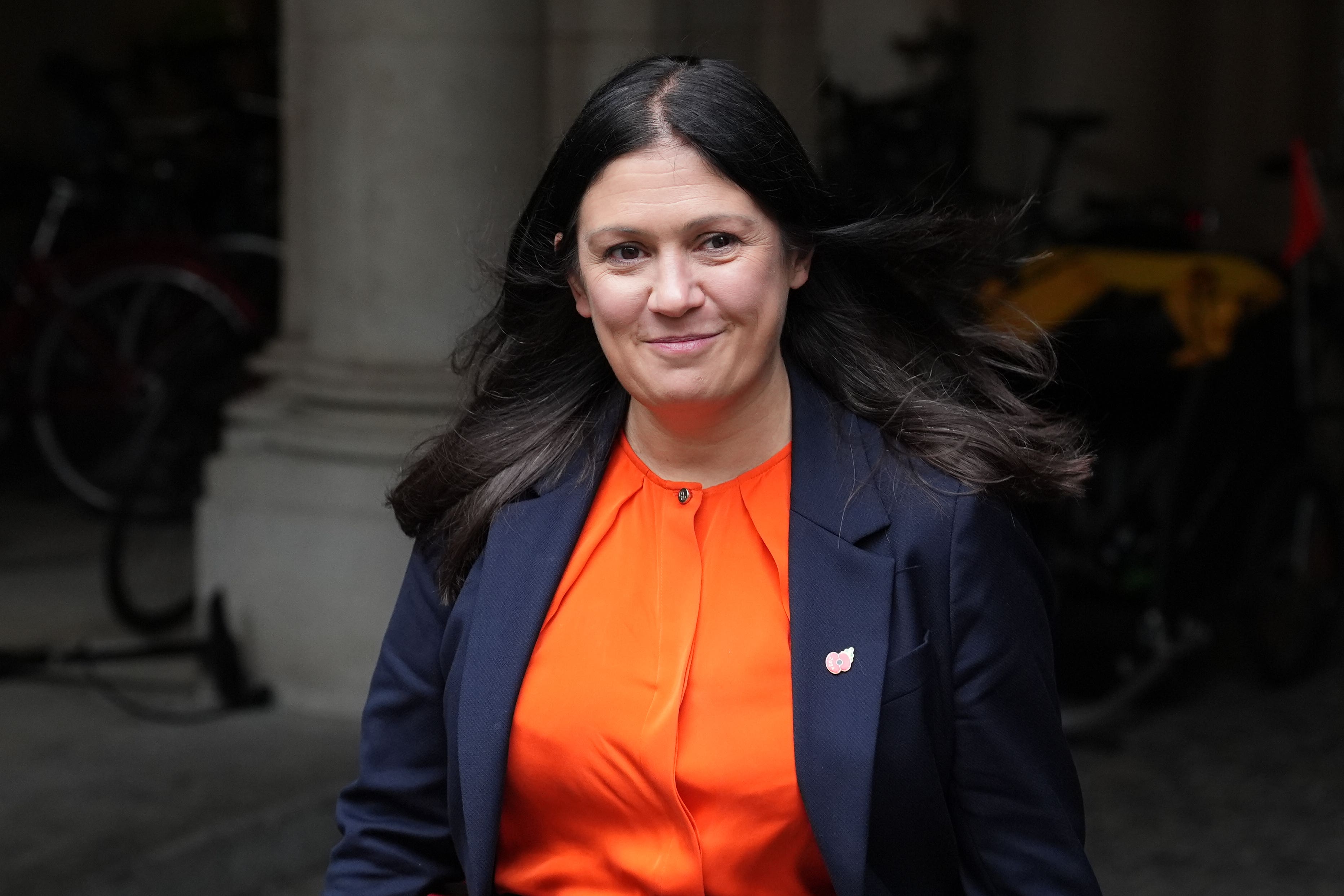We don’t need to worry about rise in borrowing costs, minister insists
Culture Secretary Lisa Nandy sought to reassure Britons about turbulence in the markets.

A Cabinet minister has insisted there is no need to be worried about rising Government borrowing costs after yields on UK bonds surged to their highest level since the 2008 financial crisis.
Speaking to broadcasters on Friday morning, Culture Secretary Lisa Nandy sought to reassure Britons about turbulence in the markets and said the Labour administration’s tax and spend rules are “non-negotiable”.
Chancellor Rachel Reeves is said to be prepared to impose more severe spending cuts on departments if necessary to balance the books, having already ruled out increasing either borrowing or taxes.
Asked whether people should be concerned about the movement, Ms Nandy told Sky News: “I don’t think we should be worried.
“It’s obviously something we take very seriously, but these are global trends that have affected many countries, most notably the United States, as well as the UK.
“We are still on track to be the fastest growing economy, according to the OECD in Europe.”
She added: “We’re not going to borrow for day-to-day spending.”
The Culture Secretary defended Ms Reeves’ trip to China this week as “absolutely” the right decision amid opposition calls for the Chancellor to cancel the planned visit amid market turmoil.
China is the second-largest economy... it's absolutely essential that we have a relationship with them
“China is the second-largest economy, and what China does has the biggest impact on people from Stockton to Sunderland, right across the UK, and it’s absolutely essential that we have a relationship with them,” Ms Nandy said.
“We need to make sure that the UK economy remains competitive, we need to challenge where we must, including in the area of human rights, but we also need to make sure that we are working with China on those areas of shared interest.”
Any further spending cuts could be announced in the Chancellor’s planned March fiscal statement, ahead of a challenging spending review that has already required Government departments to find efficiency savings worth 5% of their budgets.
The prospect of further cuts follows a rise in the yields on Government bonds, which reflect how much it costs the Government to borrow money.
Yields on 10-year gilts hit the highest point since 2008 on Thursday, at 4.89%.
It remained elevated throughout Friday, but did not surpass Thursday’s peak, and ended the day about three basis points higher, at 4.84%.
The yield on 30-year gilts briefly touched 5.43%, just below the peak of Thursday’s sell-off, which was the highest point since 1998.
By the end of the day it had settled at 5.41%, about three basis points higher for the day.
It also marked a week of volatility for the pound, which slumped against the US dollar, while the American currency strengthened off the back of data showing its jobs market has been growing.
The pound hit a fresh 13-month low against the dollar, and was down 0.7% by the time European markets closed on Friday.
Critics have drawn parallels with the fallout from former prime minister Liz Truss’ disastrous 2022 mini-budget as the rise has an inverse effect on the price of Government bonds, which are dropping as a result.
The increase in the cost of servicing Government debts could cut into Labour’s expected financial headroom in a potentially worrying sign of how investors see fiscal sustainability in the UK.
The Chancellor has previously ruled out both increasing borrowing and raising taxes following the significant tax hikes in October’s Budget, leaving her with few options beyond further spending cuts.
Government bonds have faced a sell-off around the world in recent months in the face of worries that US President-elect Donald Trump could introduce a tariff policy which would be inflationary for many international economies.
Bookmark popover
Removed from bookmarks